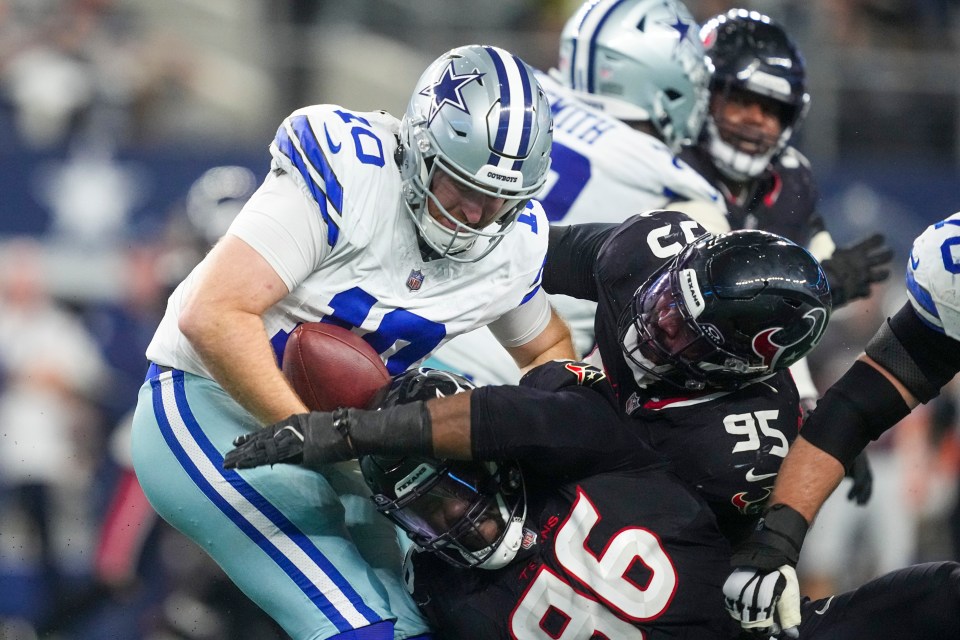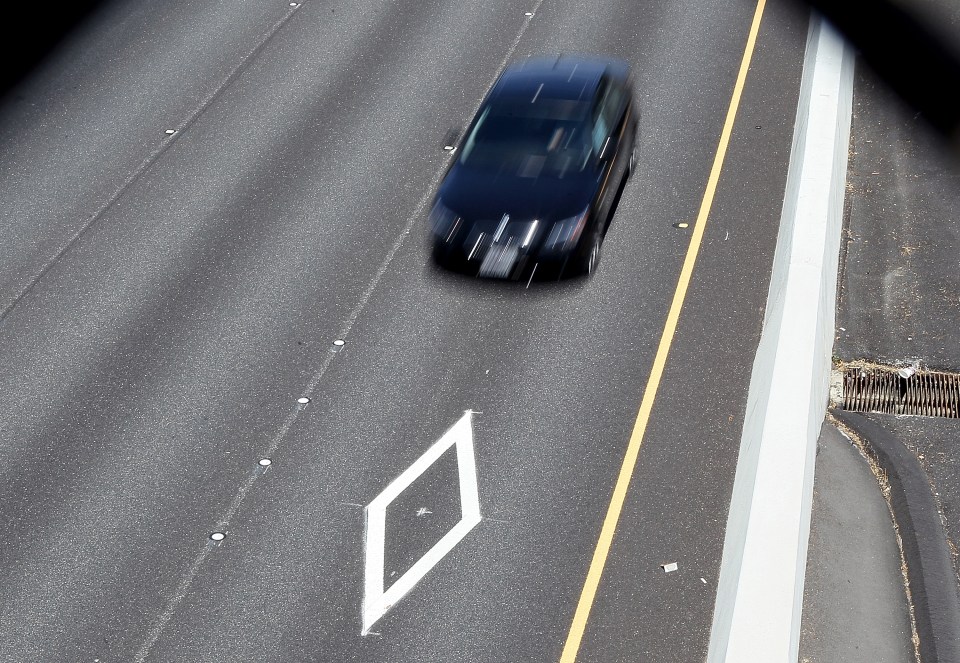Driver hit with $7,000 fine in single traffic stop as cops launch new crackdown that will last weeks
Due to slick roads brought on by winter, police have begun to tighten down on speeding vehicles, which has resulted in some expensive fines.
A Canadian driver who was caught speeding in a restricted highway lane was fined $7,000.
Police in Ontario pulled stopped a vehicle on Highway 417 on Wednesday who was exceeding the speed limit by more than 35 mph.
Additionally, the car was utilizing the high-occupancy vehicle lane.
A specialized traffic lane for cars with two or more passengers is called the HOV lane.
This motorist, though, was on his own.
READ MORE ON TRAFFIC FINES
Police claimed the car was uninsured in addition to speeding in the HOV lane, which resulted in numerous charges.
Upon convicted, the motorist will now be subject to fines of at least $7,000.
A accusation of stunt driving is also brought against them.
They will be subject to a 30-day driver’s license suspension and a required 14-day car impoundment.
They will also be subject to a one-year driving suspension and the loss of six penalty points upon conviction.
As part of their ongoing crackdown, Ontario Provincial Police apprehended three further speeding drivers on Wednesday.
Drivers face $350 fines as Leaf Day rule goes into effect – and cars will be towed street by street through December
On winter roads, officials are advising vehicles to reduce their speed.
Additionally, local police are beginning their yearly campaign to prevent drunk drivers.
The festive RIDE campaign, the name of the crackdown, began on November 21 and will last until New Year’s Day.
During the holiday season, police are concentrating on scrutinizing drivers.
How to fight a speeding ticket

There are five successful tactics to contest a speeding ticket that was issued incorrectly, per a legally verified post.
- If pulled over and issued a ticket, drivers can argue or dispute a driver’s personal opinion. When issuing a speeding ticket, an officer is required to write their opinion and come to an “objective” conclusion. If the ticket was written based on that judgment, it can be contested. An example would be if you were going 75 mph in a 65 mph zone because others were traveling at the same speed, you could argue that it would be more dangerous to travel at 65 mph.
- You can dispute the officer’s presentation of evidence. If you were ticketed for something like running a stop sign or making an illegal u-turn, you can’t contest that if an officer saw you, but you can call things into court like eyewitnesses, diagrams, or photos.
- Argue that the ticket was issued by a “mistake of fact.” This is tricky, but a “mistake of fact” is a mistake made by a driver about a situation that was beyond their control, or if a driver legitimately did not know they were violating the law. For example, you were driving in two lanes because the lane markers were so worn down that you could not see them.
- You could say circumstances justified your driving. You could say you were speeding to pass a possibly drunk driver, or avoiding an accident by rapidly changing lanes. However, the argument won’t work if there’s proof you continued to speed after passing.
- Similar to the above, it could be argued that speeding was necessary to avoid harm. The key is to argue that if you weren’t speeding, you or someone else could have been harmed.
- Consult a traffic attorney, if all else fails. Many have free consultations to decide whether or not there’s a case.
FindLaw is the source.
According to a press release for the program, impaired driving is a major contributor to collisions on our highways and a risk to our public safety.
Taking a taxi, calling a friend, staying over, or having a designated sober driver are all ways to avoid driving when intoxicated or under the influence of narcotics.
The Canadian crackdown comes as a new rule in New York might result in thousands more drivers losing their licenses.
Tighter requirements around the Drug & Alcohol Clearinghouse meant that truck drivers had until November 18 to start their Return-to-Duty process.
According to a recent report, 163,318 truck drivers are listed as “prohibited” in a database that tracks drug and alcohol test program infractions.
Read More on The US Sun
According to the new regulation, drivers who wanted to keep their licenses after November 18 had to undergo a new drug and alcohol test.
Additionally, drivers who violate Portland, Oregon’s Leaf Day parking regulations risk a $350 fine.
Note: Every piece of content is rigorously reviewed by our team of experienced writers and editors to ensure its accuracy. Our writers use credible sources and adhere to strict fact-checking protocols to verify all claims and data before publication. If an error is identified, we promptly correct it and strive for transparency in all updates, feel free to reach out to us via email. We appreciate your trust and support!















